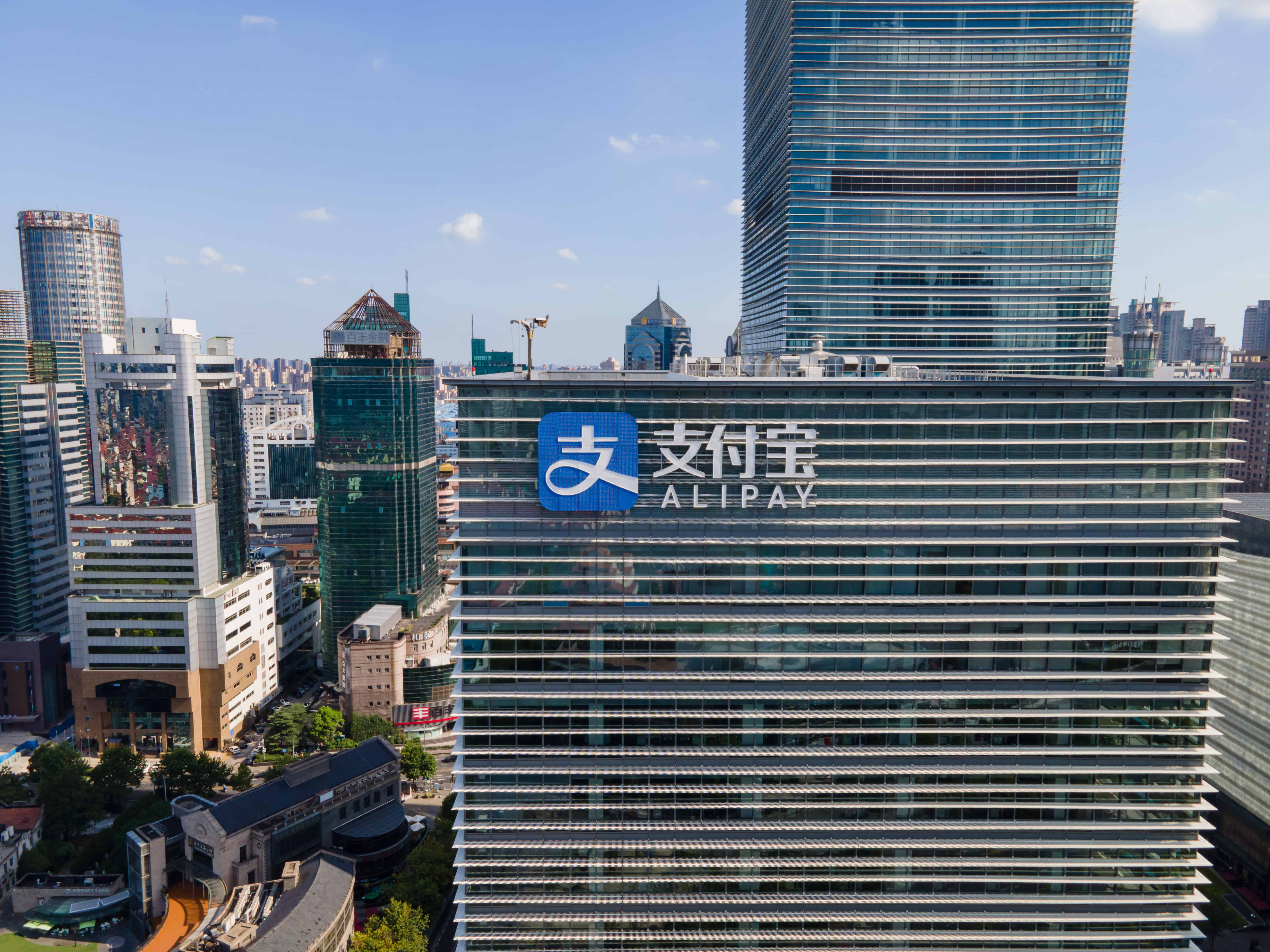
Credit: Andy Feng, Shutterstock
Ant Group, valued at $150 billion in 2018, is considered one of the world’s most valuable private companies. The company, which recently released its IPO prospectus, will dual-list on the Hong Kong Stock Exchange and the Shanghai STAR Market this month or next, and its IPO is likely to be the biggest in history, topping the offerings of Saudi Aramco and Ant’s own parent, Alibaba.
This week, we take a look at how Ant Group stacks up against global payments and financial companies, who controls the company, and who stands to benefit most from its IPO.
Ant Group is Among the Most Successful Fintech Companies in the World

Data: Companies’ annual reports, year ended Dec. 31 2019.
*Visa revenue is for fiscal year ended Sept. 30, 2019.
Ant Group ranks among the biggest fintech and payments companies in the world by revenue. The company is known mainly for its payments app, Alipay, which is ubiquitous in China, but the company also offers a money market fund called Yu’ebao, a virtual credit card called Huabei, and shipping return insurance on Taobao and other services.
Ant will also be among the biggest traditional financial services companies by valuation, with an estimated market value of more than $200 billion after the IPO — comparable to JPMorgan’s $309 billion, ICBC’s $244 billion and Bank of America’s $225 billion. At $17 billion, however, Ant’s revenue is less than one-fifth that of these companies.

Data: iResearch
Alipay boasts over 700 million monthly active users and 80 million monthly active merchants. According to iResearch, it holds a majority of the third-party mobile payments market in China. Its dominance in the country is a big factor in Ant Group’s success, with digital payment and merchant services as its second-largest revenue category (43 percent in 2019).
These Four People Hold Majority Control Over Ant
Four people together own Hangzhou Yunbo, the investment vehicle that holds 50.52 percent of Ant Group’s shares, making it the controlling shareholder. These four have each been with Ant Group and Alibaba for more than a decade and are deeply embedded in the companies’ operations.
Jack Ma, founder of Alibaba, has veto power in Hangzhou Yunbo, since its votes require a two-thirds majority and he holds a 34 percent stake. That means he effectively controls Ant Group. (See page 254-255 of the Ant Group prospectus here for more information.)

Data: Ant Group prospectus, Design: Kristian Rodriguez
Ant’s Many Investors Include Jack Ma’s Associates and Foreign Governments
Hangzhou Yunbo and Alibaba own 50 percent and 33 percent of Ant Group, and dozens of investors make up the remaining 17 percent. Below, we highlight the top 15 onshore and offshore investors, according to Ant Group’s Hong Kong application for listing.
The list includes a handful of firms controlled by Jack Ma’s friends and associates, including several owned by David Yu and his family members. Yu started Yunfeng Capital with Ma. The firm invests in technology, health care, entertainment and other sectors.
Some of China’s wealthiest businessmen hold stakes in Ant, including Sun Piaoyang, founder of Hengrui Pharmaceutical, and Lu Zhiqiang, former chair of Oceanwide Holdings. Governments have also gotten in on the action: the Singapore government, Malaysia’s sovereign wealth fund and Canada’s pension plan are among Ant’s investors.

Data: Ant Group prospectus, Design: Kristian Rodriguez
Shanghai Qihong Investment Center (Limited Partnership)
Many of the people in Jack Ma’s inner circle invested in Ant through one company: Shanghai Qihong Investment Center (L.P.).
The shareholders of Qihong include limited partners of Yunfeng, according to its website — Liu Yonghao, chairman of New Hope Group, Shi Yuzhu, founder of Giant Interactive Group and Shen Guojun, founder of Yintai Group.
They also include those whose companies Ma and Alibaba have invested in, such as Wang Zhongjun, chairman of Huayi Brothers Media Co. Below is a deeper accounting of the other significant shareholders.


Emma Bingham is a Boston-based editor for The Wire. Previously, she was editor in chief of The Tech at the Massachusetts Institute of Technology. @emmapbingham



